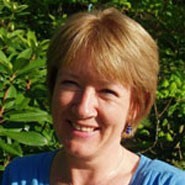4. Qualitative and quantitative techniques in remote evaluations
Date:
Thursday 11th April, 12:30 to 14:00
Speakers:
Mr François Dupaquier - Frontview, CEO and evaluator

Mr Dupaquier is a senior manager expert, with a strong protection and operation strategy-oriented approach. He has over 15-year experience in overseeing large-scale qualitative and quantitative evaluations, analysis and research projects in more than 20 countries and in dozens of political crises and armed conflicts.
He worked with many NGOs and multilateral and bilateral agencies to model evaluation using a diversity of methods and analytic techniques, and development plans including performance evaluations. Since 2011 he is working on conflict sensitivity and protection issues related to the Syrian and Iraqi crises.
Ms Margie Buchanan-Smith – Overseas Development Institute (ODI), Senior Research Associate and Tufts University, Visiting Fellow

As an experienced evaluator of humanitarian action (30 years), Ms Buchanan-Smith has led numerous evaluations, often in conflict environments, for UN agencies, NGOs and governments. She co-authored the ALNAP manual on the evaluation of humanitarian action, is regularly requested to peer review humanitarian evaluations and has been co-facilitating trainings on the evaluation of humanitarian action (EHA) for eleven years.
She is a Sr. Research Associate with the Humanitarian Policy Group at ODI and is a Visiting Fellow with the Feinstein International Center at Tufts University.
Description
Margie Buchanan-Smith will share her experience of gathering information and evaluating UN programmes in ‘hard to reach’ areas in Somalia, South Sudan, Darfur, Sudan. In each context part of the evaluation involved field work with local researchers, using qualitative methods and Participatory Rural Appraisal (PRA) approaches in locations where it had been judged very difficult or impossible to do ongoing monitoring. In Somalia evidence was collected iteratively, with photographic and audio recordings made by the local researchers, and key informants were interviewed in a safe environment. In South Sudan, field work by local researchers preceded the main evaluation phase. In Darfur, three teams worked simultaneously in different parts of the region. A robust methodology, yet flexibility and adaptation, were key to success.
Mr Dupaquier will present his experience and key lessons from the use (both in a development and in a humanitarian context) of local researchers and enumerators with no or little evaluation experience in gathering qualitative and quantitative evidence by using different techniques and triangulating findings.
Introduction: Mr Andrea Alfieri - DEVCO, Head of Sector ‘Results, Monitoring and Evaluation’, Unit ‘Evaluation and Results’
You can watch the video recording of the conference here:
